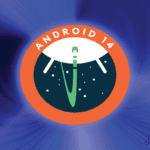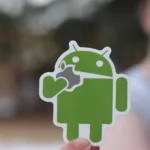Google Rolls Out Android 14 QPR3 Beta 2 for Pixel Devices

Google's newest mobile version of Android, Android 14, has intelligent features and improvements that ensure better security, enhanced performance, and seamless user experience in all Android devices. The release of Android 14 QPR3 Beta 2 is deliberately planned as the second beta release for the next version of Android. It is specifically targeted at early adopters and enthusiasts who look forward to the newest functionalities. The version can contribute immensely valuable opinions toward the company.
These releases are major contributors to the overall improvement of the product. They expertly see and fix bugs that might be encountered before the official release, allowing users to transition smoothly. Similarly, Pixel devices, which stand as Google's standard for smartphones and tablets, embody a pure, stock Android flavor.
The device consistently verifies updates provided by Google. The company is known for its great photography performance and frequent software updates. It also enhances communication with Google services; Pixel mobiles are leaders in the excellence of Android.
What is Android 14 QPR3 Beta 2?
Version 14.0 QPR3 Beta is the second Android 14 Quarterly Periodic Release program update. QPRs are update stacks bare for bug fixing and changes, as for Android 14 every quarter. The difference between a major and minor Android system upgrade that Android QPRs implement is changes in the interface or new functionality.
This bug-fixing beta, which came along in March 2024, fixes bugs detected in the previous QPR beta. It cures users' imperfections, such as app crashes, black screens, and failures of updates and backups.
That said, QPR betas had some issues that weren't fully resolved in the final version. They have bugs like the previous versions. They might not be a good fit for users who depend on strong and stable software. This is a warning to developers and pioneers to approach Web 3.0. They must be familiar with the missing things.
Key Fixes and Improvements of Android 14 QPR3 Beta 2
- Device Crashes and Restarts: Google identified the cause of the bugs that made devices freeze or restart without any warning.
- App Updates After Flashing: Users may not be subject to any accidental crash or restart while updating their device.
- Black Screen After Booting: The patch addresses a bug producing a deficiency in displaying the output during system startup from Flash.
- Secondary User Crashes: Google spotted a defect that caused the device to halt and display a black screen without indication.
- Always-On Display Mode: In future Android versions, always-on display modes no longer interrupt the double color to wake gesture. Consequently, the security loopholes must also be adjustable, i.e., fingerprint issues must be resolvable.
- Battery Information Display: The battery information settings page is editable in the system settings, the status bar, and the top of the display.
- Device-to-Device Transfers and Backup: The users can perform the functionality according to the expected behavior.
- System Stability and Camera Improvements: The debugging system has addressed system stability, performance enhancement, and camera functionality.
Compatibility and Warnings for Android 14 QPR3 Beta 2
Compatibility:
Device Limitations: The advantages that builders of beta versions of software have over the final product users are the same in terms of accessibility and similarity. Contrary to its predecessors, it uses the 4th-generation Google Pixel phones.
The second thing to remember is that you should own the right machine. You can ask the manufacturer or download a list of devices that work with QPR instruments.
App Compatibility Issues: We've got the QRPR3 beta's preloaded copy, so take it carefully. Conflicts, ambiguous signals, and unexpected bugs represent the most obvious deviations.
Warnings:
Bug Encounters: Beta software stands out from the more complete traditional software because it offers additional features. If you find mistakes, this beta, being in an experimental stage, may trigger bugs that could lead to the system's instability.
User Instruction: These bugs may be as small as freezing the screens or stopping an application. They may be so annoying that users disconnect from them or, in the worst case, lose their data.
Performance Impacts: Because the new QPR3 Beta is not as ready as the finished one, all your operations on your gadget are usually slower today. Thus, it will give users a slow phone as it will be slower than normal in any of the life apps, as some apps will spend more time loading than needed time. It could also become a vulnerability in the battery as the software could exert more effort.
Security Considerations: Google conducts the beta program to mitigate its space for system bug security oversight. If there had been 0% certainty that the new vulnerability would be discovered in the QPR3 platform at any time, the danger would have been great. Doing this can put any device at risk since these holes can be abusive and cause security threats, so we should be educated about this.
Point to Remember
Android 14 QPR3 Beta has a core group of beta testers who are extremely technical and want access to test the app's new features and provide feedback. The designers saw this as not being developed for people using their phones daily for everyday tasks. Stability is a concern. If it is, wait until the official app, Android 14, is released for certainty that you will have a smooth and predictable experience throughout.
How to Get the Update for Android 14 QPR3 Beta 2
There are two main ways to get the Android 14 QPR3 Beta. Still, it's important to consider the following before you proceed: There are two main ways to get the Android 14 QPR3 Beta. Indeed, it's important to consider the following before you proceed:
Limited Availability:
The QPR3 Beta doesn't support all devices and hence can't be useful. It is usually a personal Google device (Pixel 5a and above) and some makers of their other tools that are part of the program. First, check with your device manufacturer to ensure you have a model and version of hardware qualifying for the program.
Beta Software:
Release 3 of QPR in the Beta version may still have flaws. The app is less stable than the final release. Ensure you are ready for application crashes, abrupt stops, or data loss.
Here's how to obtain the QPR3 Beta if your device is compatible and you're comfortable with the potential risks:
Method 1
The Android Beta Program will be a good idea by which a tester will be in the index.
Visit the Android Beta Program website: https://www.google.com/forum
Use the Google account you have been logging in to when your Pixel device is connected.
Select "Your eligible devices" under the "The steps to enrol your phone" headline.
Click "Opt-in" to participate in the relevant devices. You'll finish the enrolment process after filling out the information on the screen.
Method 2
In order to avoid having to keep updating your device every time there is a new QPR3 Beta version, make sure that your device is compatible with it first.
On the Android developer's site, get Update down.
Navigate to the home page of this online application and find the link for the Pixel phone.
Unlock Bootloader and Enable Developer Options: Unlock Bootloader and Enable Developer Options:
Final Verdict
Android 14, QPR3 beta 2 is available to Pixel devices, which is a good indication of the great development of the Android system. It is the newest list of beta version codes to repair different kinds of issues and improve device stability, performance and satellite TV solutions.
The main audience of the Beta program is developers and early birds who are extremely interested in learning about the forthcoming novelties, and that is not a problem for them to share their feedback. On the one hand, the utility of beta versions makes them exciting, but it is also necessary to exercise caution when installing them because they might come with major bugs and issues. However, this version of the song can still be appropriate, as there are people who read within the lines too.
People who were involved in the Android 14 QPR3 Beta 2 versioning before the release will be known as one of the factors in the future Android universe that will determine the next phases of mobile technology development in the coming months.
More to Read on: Google TV by Chromecast Gets to Have New Homescreen Update


